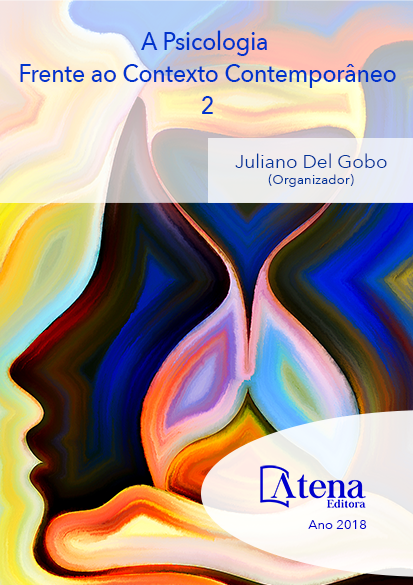
SCHADENFREUDE E ESTEREÓTIPOS: OS LIMITES ENTRE ENDO E EXOGRUPOS
A Schadenfreude é um termo
alemão, cuja tradução portuguesa é alegria,
prazer, satisfação, etc. Em português, poderá
traduzir-se este termo por prazer malicioso; o
rejubilar pela tristeza de outro.Schadenfreude
não se trata do prazer por causar sofrimento ao
outro, é o prazer por observar esse sofrimento,
é o contentamento malicioso pelo infortúnio dos
outros. Nas relações intergrupais denota-se
uma possível influência dos estereótipos para
ativação da Schadenfreude. Á vista disso, o
objetivo deste estudo é analisar a atribuição de
Estereótipos e a Schadenfreude frente a alvos
sociais em situação de infortúnio, facilitadas ou
não a atribuírem tais estereótipos, observando
se há a relação entre esses dois sentimentos.
Participaram da pesquisa 20 crianças, entre 9 e 11
anos de idade. As crianças foram entrevistadas
utilizando um roteiro pré-estabelecido, onde
elas eram solicitadas a apresentar traços e
conteúdos estereotípicos atribuídos pela própria
criança e por agentes socializadores (pais,
professores, colegas) a si mesmo e a outras
crianças brancas e negras, além de desenhar
as crianças representadas em seus discursos.
As perguntas dirigidas foram elaboradas a
partir dos conceitos de autoimagem, identidade
social, estereótipos, relações intergrupais e
Schadendreude. As crianças participantes desta
pesquisa apresentaram crenças fundadas no
processo de socialização e mostraram o quanto
os agentes socializadores são importantes no
desenvolvimento do ser humano, na construção
da sua identidade, uma vez que as crianças
introjetam as normatividades sociais aprendidas
em seu meio social.
SCHADENFREUDE E ESTEREÓTIPOS: OS LIMITES ENTRE ENDO E EXOGRUPOS
-
DOI: 10.22533/at.ed.17918191217
-
Palavras-chave: Relações intergrupais; Schadenfreude; Estereótipos;
-
Keywords: Intergroup relations; Schadenfreude; Stereotypes;
-
Abstract:
The Schadenfreude is a German
term, whose Portuguese translation is joy,
pleasure, satisfaction, etc. In Portuguese,
this term can be translated by malicious
pleasure; rejoicing in the sadness of others.
Schadenfreude is not about pleasure to cause
suffering to the other, it is pleasure to observe
this suffering, is malicious contentment by the
misfortune of others.In the intergroup relations
there is a possible influence of the stereotypes
for the activation of schadenfreude. In view of
this, the objective of this study is to analyze the
attribution of Stereotypes and Schadenfreude
to social targets in situations of misfortune,
facilitated or not to attribute such stereotypes,
observing if there is the relationship between
these two feelings. Twenty children, 9 to 11 years
of age, participated in the study. The children were interviewed using a pre-established
script, where they were asked to present stereotypical traits and contents attributed
by the child and by socializing agents (parents, teachers, colleagues) to himself and
to other white and black children, besides drawing the children represented in their
speeches. The questions addressed were elaborated from the concepts of self-image,
social identity, stereotypes, intergroup relations and Schadenfreude. The children
participating in this research presented beliefs based on the socialization process and
showed how socializing agents are important in the development of the human being,
in the construction of their identity, since children introduce the social norms learned in
their social environment.
-
Número de páginas: 15
- Ícaro Cerqueira
- Marianne Cunha
- Saulo Almeida
- Vanessa Andrade
- Vanessa Andrade de Assis


